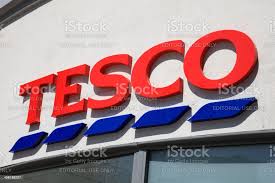
Tesco, the largest retailer of the United Kingdom, has forecast a profit decline this financial year as rising inflation puts pressure on both the grocery chain and its customers.
The company's stock, which controls more than 27% of the UK food market, plunged 5 per cent in early Wednesday trade, the greatest drop of a blue-chip stock in Europe. It dragged down other retail companies, including online supermarket Ocado, Sainsbury's, JD Sports, and Marks & Spencer.
Tesco's retail adjusted operating profit for the year ended February was 2.65 billion pounds ($3.45 billion), up 36 per cent and in line with projections. Profits of between 2.4 billion and 2.6 billion pounds are expected in 2022-23.
"Given the significant uncertainties in the external environment, we believe it is appropriate to provide profit guidance in the form of a wider than usual range," Tesco said.
Even before April's significant hike in power costs, Britain's inflation rate touched a 30-year high of 7 per cent in March. The biggest compression on household wages since the 1950s is being caused by rising costs.
Tesco said three things will likely influence its performance: the resumption to more normal customer behaviour following the Covid-19 outbreak, its ability to offset increasing expenses, and the investment required to keep prices low.
"Clearly, the external environment has become more challenging in recent months," said CEO Ken Murphy.
"Against a tough backdrop for our customers and with household budgets under pressure, we are laser-focused on keeping the cost of the weekly shop in check."
The UK food sector is suffering from a cost of living problem and supply chain interruptions as a result of Russia's invasion of Ukraine.
Morrisons, UK's fourth largest grocery chain, warned last week that the crisis and increasing inflation could hurt its yearly profit. The Co-operative Group, ranked seventh, cited "severe" economic challenges. find out more
The conflict in Ukraine has harmed sunflower oil supplies and pushed up animal feed and wheat prices, affecting meat, dairy, and pastry prices.
The cost of doing business has also increased as a result of rising energy prices and rising labour costs.
According to market research, buyers have begun to change their buying patterns in order to save money, opting for more affordable own-label food products.
Tesco reported a 3.0% increase in group sales to 54.8 billion pounds in 2021-22. It outperformed Sainsbury's, Asda, and Morrisons, its three main competitors.
The company has already returned 300 million pounds to shareholders through a share buyback programme, with another 750 million pounds set to be repaid by April 2023.
(Source:www.usnews.com)
The company's stock, which controls more than 27% of the UK food market, plunged 5 per cent in early Wednesday trade, the greatest drop of a blue-chip stock in Europe. It dragged down other retail companies, including online supermarket Ocado, Sainsbury's, JD Sports, and Marks & Spencer.
Tesco's retail adjusted operating profit for the year ended February was 2.65 billion pounds ($3.45 billion), up 36 per cent and in line with projections. Profits of between 2.4 billion and 2.6 billion pounds are expected in 2022-23.
"Given the significant uncertainties in the external environment, we believe it is appropriate to provide profit guidance in the form of a wider than usual range," Tesco said.
Even before April's significant hike in power costs, Britain's inflation rate touched a 30-year high of 7 per cent in March. The biggest compression on household wages since the 1950s is being caused by rising costs.
Tesco said three things will likely influence its performance: the resumption to more normal customer behaviour following the Covid-19 outbreak, its ability to offset increasing expenses, and the investment required to keep prices low.
"Clearly, the external environment has become more challenging in recent months," said CEO Ken Murphy.
"Against a tough backdrop for our customers and with household budgets under pressure, we are laser-focused on keeping the cost of the weekly shop in check."
The UK food sector is suffering from a cost of living problem and supply chain interruptions as a result of Russia's invasion of Ukraine.
Morrisons, UK's fourth largest grocery chain, warned last week that the crisis and increasing inflation could hurt its yearly profit. The Co-operative Group, ranked seventh, cited "severe" economic challenges. find out more
The conflict in Ukraine has harmed sunflower oil supplies and pushed up animal feed and wheat prices, affecting meat, dairy, and pastry prices.
The cost of doing business has also increased as a result of rising energy prices and rising labour costs.
According to market research, buyers have begun to change their buying patterns in order to save money, opting for more affordable own-label food products.
Tesco reported a 3.0% increase in group sales to 54.8 billion pounds in 2021-22. It outperformed Sainsbury's, Asda, and Morrisons, its three main competitors.
The company has already returned 300 million pounds to shareholders through a share buyback programme, with another 750 million pounds set to be repaid by April 2023.
(Source:www.usnews.com)














